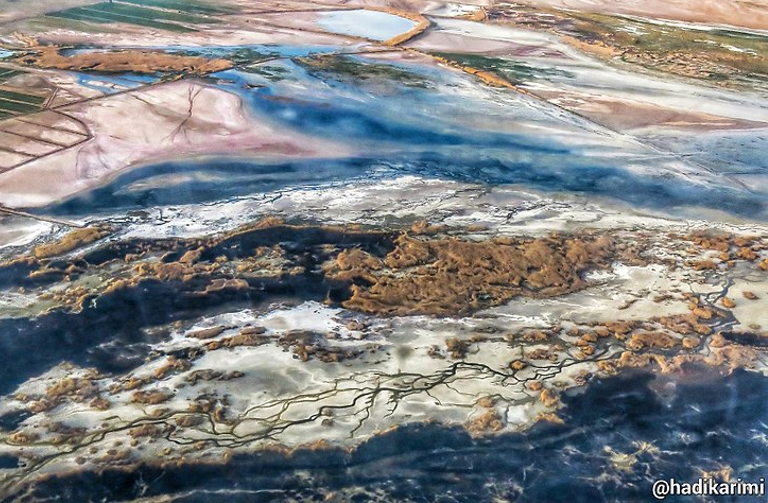There were some obvious and even historic ways in which nature was on the ballot this year in the United States:
- Orange County, Florida voters overwhelmingly approved a charter amendment to give rights to two rivers to be free from pollution. By a margin of 89 percent, voters approved “the right to sue corporate polluters in court, without having to show they have been personally harmed, as state law requires.” The state legislature’s preemption of local jurisdiction regarding rights of nature may not be an obstacle if it is ruled unconstitutional in a case currently before the courts.
- American participation in the Paris Agreement, the climate accord reached by the world’s governments in 2015, was also on the ballot indirectly. President Donald Trump withdrew the United States from the agreement. Trump’s opponent, Joe Biden, pledged to have the United States rejoin.
- Numerous conservation millages, like this one in Washtenaw County, Michigan, were approved by voters for various conservation projects such as tree planting, protecting habitat and assisting efforts to keep surface and groundwater clean.
What we may not realize is that nature is always on the ballot everywhere. But our awareness of that fact is only now bubbling to the surface of political consciousness. Even those who have no wish to accommodate the supposed needs of nature are actually acknowledging those needs by opposing them—usually by saying that human needs are more important.
But therein lies the contradiction in our thinking. For surely we humans are as much a part of nature and everything we attribute to it. As I’ve written before, one of tenets of the crumbling system of modernism is that humans are in one category and nature is in another. Now the word “nature” has been much abused and misused. So, we need something else. French thinker Bruno Latour has suggested “parliament of things.”
To me the key point is that “things” in nature are not mere objects, but actors. The climate system is filled with myriad actors of which humans are just one group. Yet, we have divided our governance into two realms: 1) politics for social ordering and 2) science and technology for ordering the objects in the natural world.
In truth, the climate system resides in both realms. And, our artificial split of the two makes it difficult to characterize so many phenomena that make up our contemporary world—precisely because those phenomena are products of human interaction with nature. In fact, it is hard to find anything in our lives that doesn’t involve both.
As Latour would say, we have one constitution for our social and political lives and another for the natural world. What we need is a constitution that takes both into account both so that we might competently govern ourselves within the world we actually reside.
According to the excellent summary of Latour’s thinking on this issue linked above, “[a] fact is the end product of a process.” Facts to not “exist;” they are constructed from painstaking exploration, observation and dialog with other humans and with the natural world. And, they are dependent on the context of the time and place for which they are being constructed. This means that facts, above all, need champions, political champions to bring them into social discourse.
Many of us are deeply troubled by what we perceive as the rejection of science. First, there is no such thing as a unified science, but rather sciences, that is, various methodologies and modes of observation which animate the many sciences. Field biology is science. But so is quantum mechanics. And, quantum mechanics is part of physics, of course, which houses two incompatible systems, the other being relativity. Science is by no means unified, and each part of it is ever evolving.
What is being rejected in our own day is scientism. Here I am focused on scientism as “efforts to extend scientific ideas, methods, practices, and attitudes to matters of human social and political concern.” What Latour is pointing to is a system of thought that breaks through the dualism (and counters a scientism which wants to take over politics) and so suggests a more nuanced and complex approach to the “hybrid objects” which populate our world such as climate change. Climate change is at once a political challenge and an object of scientific inquiry. We not only have facts about climate change, we have feelings about it. Politics is a way of mediating those feelings if only we could agree on the facts.
Naive political actors would like to think that the “facts speak for themselves.” But, as I’ve indicated, facts are the end product of a process and require champions to turn them into facts, that is, ideas that are widely accepted as the basis for action.
The belief that people should just “get it” is a failure of political thinking. People “get” what they are persuaded to “get.” Right now they are being persuaded that climate change isn’t an important enough threat to actually do anything substantial about. This is, in part, due to the techno-utopian vision that says with the right technology we can “conquer” climate change. This only gets us back to the purely imaginary split between humans and nature without realizing it.
We are more likely to get somewhere, in my view, if we think of our relationship with climate change as one requiring careful listening and dialog. You can’t get anywhere with an active agent in the world without carefully considering its place in the parliament of things.
The same can be said of the myriad other existential challenges we face: soil and water depletion, resource and energy depletion, and the growing toxic pollution in our air, soil and water, to name just a few.
But they all come back to our inability to place ourselves in a “constitutional” framework that stops separating humans from our surroundings—our social and political lives from their effects on the parliament of things which enables and surrounds us.
The recognition of the rights of nature is a beginning for this process, but it is just a beginning. The entire parliament of things requires not only our recognition, but also our voice to carry its concerns forward into our everyday social and political lives.
Image: Nature Painting (2016) by Hadi Karimi via Wikimedia Commons https://commons.wikimedia.org/wiki/File:Nature_painting_-_panoramio.jpg






